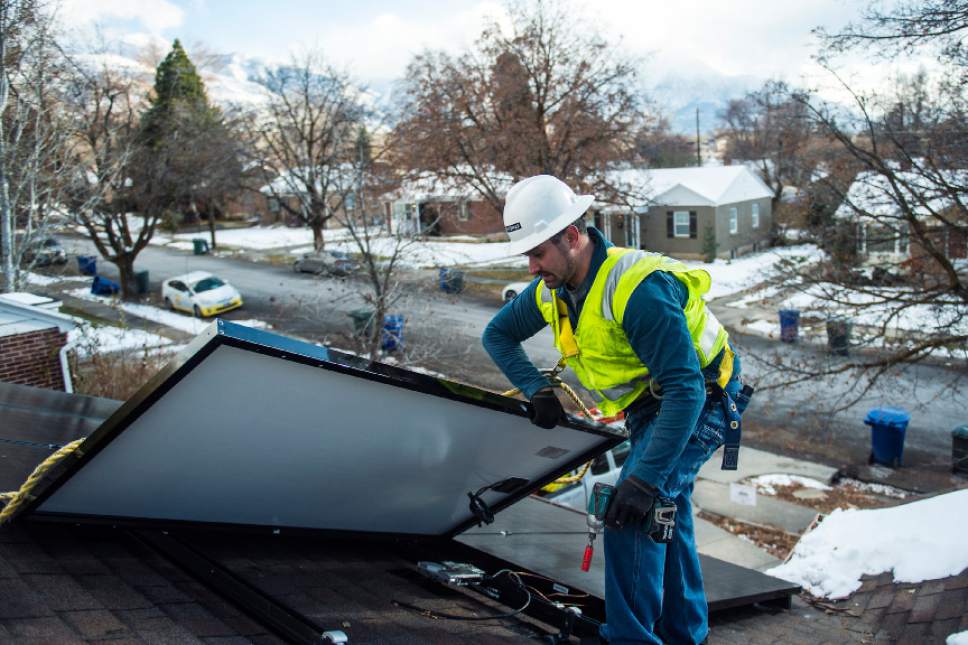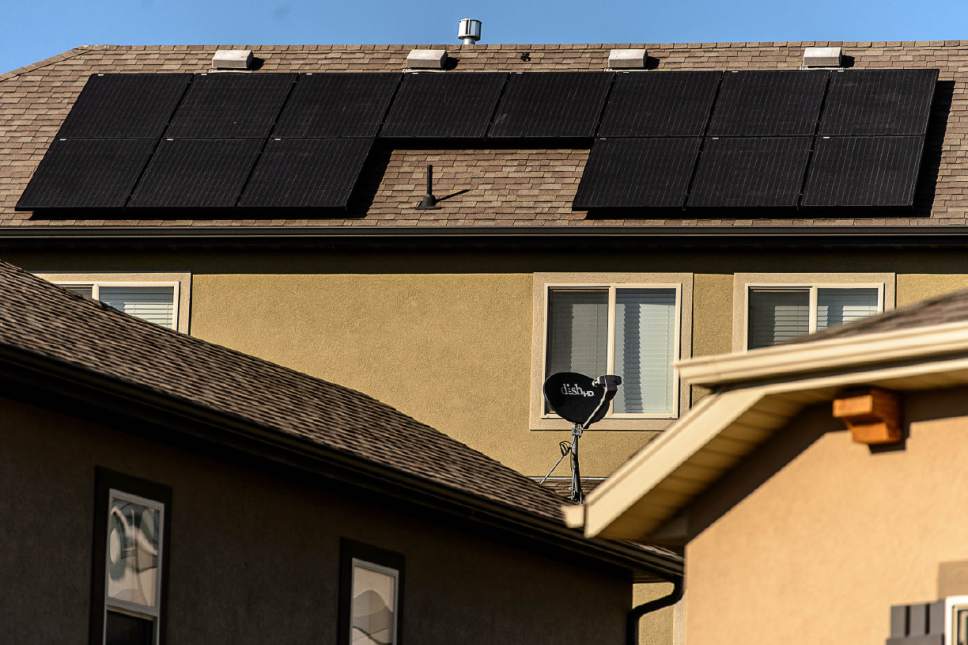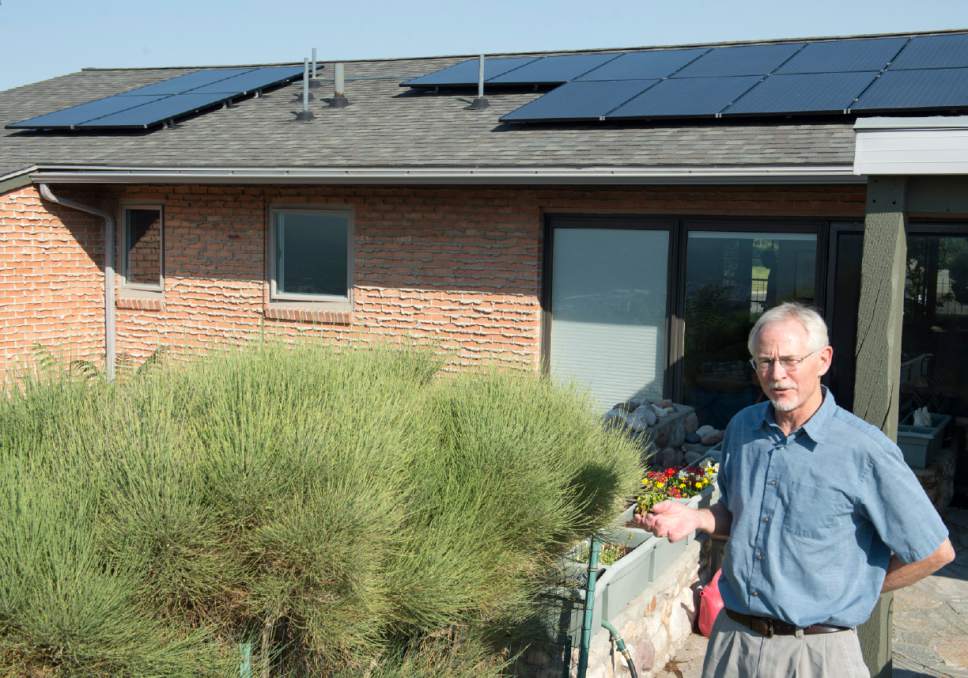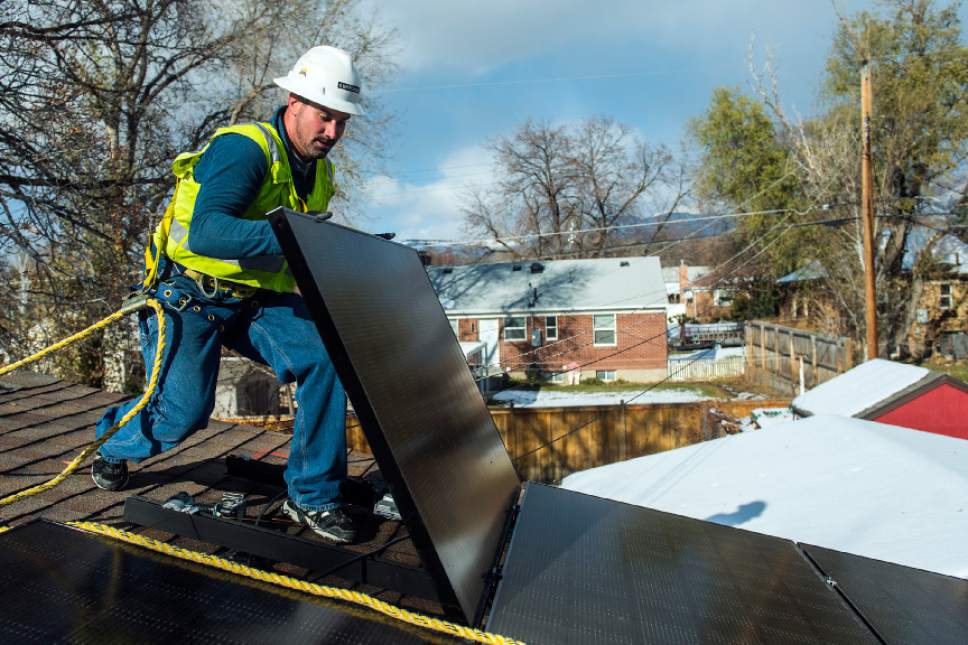This is an archived article that was published on sltrib.com in 2017, and information in the article may be outdated. It is provided only for personal research purposes and may not be reprinted.
Utah's booming market for residential solar panels has attracted the attention of many — including some who seek to take advantage of people.
Solar-related phone scams have become more common over the past two months, according to Julie Price, with the Utah Department of Commerce. Since the department issued its first release about a solar-related phone scam in January, the number of complaints has climbed into the double-digits.
That first complaint prompted Commerce to issue a warning about telemarketers who claimed to represent the Utah Public Utilities Commission — a nonexistent entity that could be mistaken for the Utah Public Service Commission.
The real commission is in the process of reviewing a proposal to change the way solar customers are billed by Rocky Mountain Power, but "doesn't do anything that involves cold calls to the public" and does not sell solar panels, said Thad LeVar, chairman of the Public Service Commission.
This month, Rocky Mountain Power issued its own warning about door-to-door salesmen and telemarketers who are falsely claiming to be working for or with Rocky Mountain Power. According to the company, these sales people may claim their affiliation with the utility will enable their customers to get discount rates on solar panels.
"Then we heard about others, who said the person said they were with Rocky Mountain Power and helping the company meet a quota for solar panels installed," said Paul Murphy, a spokesman for the power company. "Others said they were told this person could install solar panels at no cost and eliminate their electric bills."
Although Rocky Mountain Power does have a net-metering program that allows households with rooftop solar panels to connect to the grid and earn credits for power generated, the utility itself does not install residential solar panels.
Price said residents should be especially wary of any sales pitches that use scare tactics or claims of urgency — another common element among the complaints received by the state and Rocky Mountain Power. For example, Murphy said they have heard of sales people claiming that electricity prices are projected to increase steeply over the next 10 years, when in fact the utility expects prices to remain more or less the same.
Other calls have involved claims that solar panels must be installed before a certain government-imposed deadline, possibly riffing off a deadline that was tied to Rocky Mountain Power's current net metering rate case. Rocky Mountain Power has asked to suspend that deadline pending ongoing negotiations with the solar industry.
Price said the Utah Department of Commerce has noticed that many of the complaints they have received involve calls from phone numbers that appear on caller ID as though they are local solar companies, but that actually originate from overseas.
What's happening in Utah right now is not novel, said Tom Kimbis, executive vice president of the national Solar Energy Industries Association. These sorts of scams and other unethical behaviors pop up whenever a new solar market begins to boom.
"This is the flip side of an industry that is growing very, very fast," he said. "Where there is a market that has been fairly hot, you have a handful of unscrupulous people who are trying to take advantage of people's ignorance."
The Solar Energy Industries Association, other industry groups, and many large solar companies themselves have no great love for overly-aggressive telemarketers, Kimbis said.
"We as an industry have absolutely no need for them," he said. "We don't want any of these criminals involved with our industry, and we're doing everything we can to try to weed them out."
With many of the offending calls come from overseas lead generators, not the solar companies themselves, it makes it difficult to combat. The industry has drafted a code of conduct and has worked with state investigators on fraud cases.
One thing the industry can do, Kimbis said, is educate consumers. So the Solar Energy Industries Association has produced a consumer guide, which is freely available online at SEIA.org/consumer. The Utah Solar Energy Association has also produced a solar buyers guide, which Kimbis praised, and Rocky Mountain Power has a checklist of questions consumers should ask before buying a rooftop array.
The most important thing consumers need to know, Kimbis said, is that there is never a good reason to make an on-the-spot purchase over the phone. Before signing a contract for solar installation, consumers should get at least three quotes from three different companies. Legitimate companies will understand the process and expect their customers to take their time before making a decision, Kimbis said.
Kimbis also recommended asking companies to provide a disclosure form with their estimate, just as one would do while buying a house. These forms are designed to clarify details such as the price of the contract, the financing terms, the amount of power the system will generate, when and how it will be installed, and whether the installer will provide ongoing maintenance.
Twitter: @EmaPen









